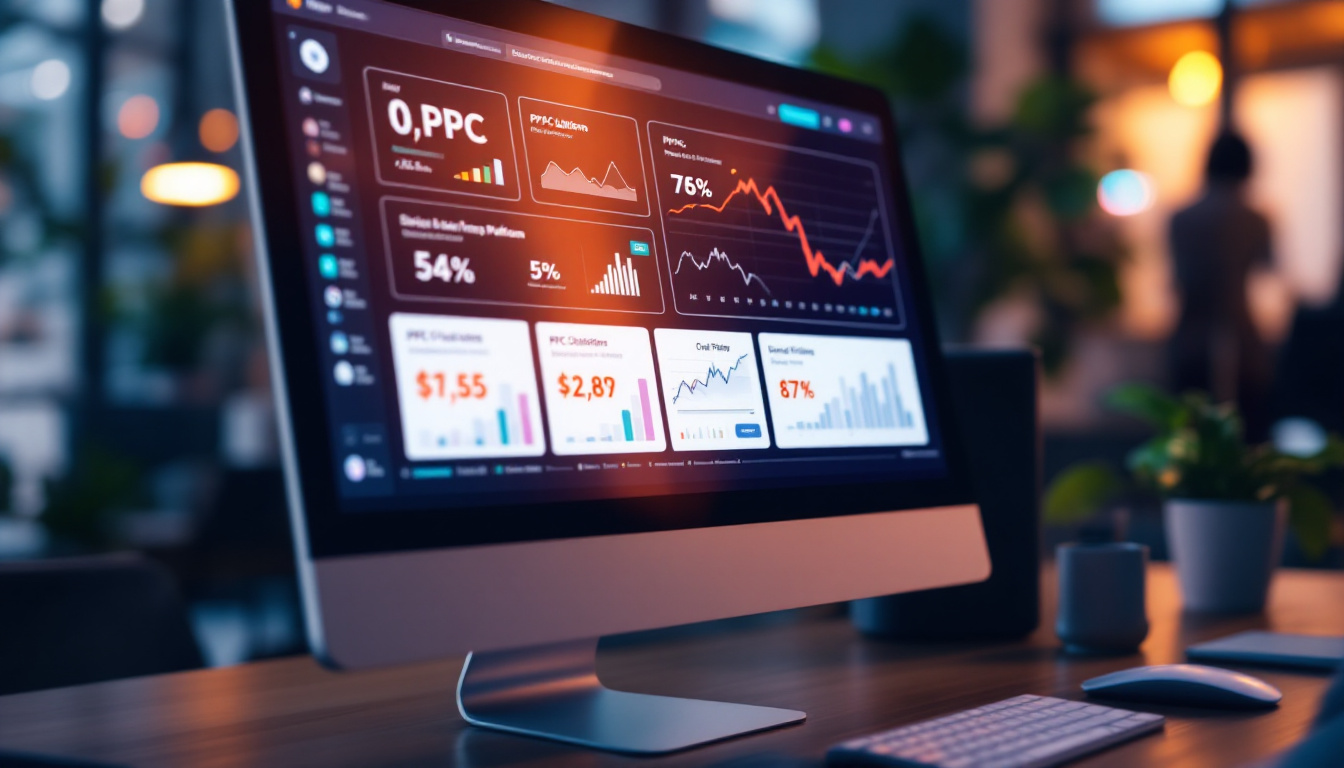Top PPC FAQs Answered for Portland, OR Businesses

Pay-per-click (PPC) advertising has become an essential marketing strategy for businesses looking to enhance their online visibility. With its effectiveness in generating leads and driving traffic, especially in competitive markets like Portland, OR, it’s critical to understand its fundamentals. In this article, we’ll dive into the most frequently asked questions about PPC to help local businesses navigate this powerful tool.
What is PPC and how does it work?
PPC, or pay-per-click, is an online advertising model where advertisers pay a fee each time their ad is clicked. It essentially allows businesses to buy visits to their website rather than attempting to earn those visits organically. This model is commonly associated with search engine advertising on platforms like Google Ads.

The process begins when a business creates an ad and selects relevant keywords that they want to target. When someone searches for those keywords, the search engine determines the ad’s placement based on a variety of factors, including the bid amount and the ad's quality. PPC is an auction-based system, meaning that advertisers compete for placement, and the ones who bid the most—and have the highest quality ads—typically gain the best positions.
Key Components of PPC
To understand PPC better, it's vital to grasp the key components involved:
- Keywords: The terms that trigger the display of ads.
- Ad Copy: The actual content of the advertisement that persuades users to click.
- Landing Pages: The specific web pages where users land after clicking on the ad.
- Bidding and Budgeting: The financial aspect, determining how much an advertiser is willing to spend on their campaigns.
In addition to these components, understanding the importance of ad extensions can significantly enhance a PPC campaign's effectiveness. Ad extensions provide additional information and options to users, such as location details, phone numbers, or links to specific pages on a website. This added visibility can improve click-through rates, as users are more likely to engage with ads that offer comprehensive information at a glance. Moreover, utilizing ad scheduling can help advertisers display their ads at optimal times when their target audience is most active, further maximizing the potential for clicks and conversions.
Another critical aspect of PPC is the ongoing analysis and optimization of campaigns. Advertisers must continually monitor performance metrics such as click-through rates (CTR), conversion rates, and cost per acquisition (CPA) to determine what is working and what isn't. This data-driven approach allows businesses to make informed adjustments to their keywords, ad copy, and bidding strategies, ensuring that their PPC efforts remain effective and yield a positive return on investment. By employing A/B testing for different ad variations, advertisers can identify the most compelling messages and visuals that resonate with their audience, ultimately driving greater success in their campaigns.
Why is PPC important for local businesses?
PPC offers unique advantages for local businesses in Portland, OR. With more consumers turning to the internet to discover local services, having a targeted online presence becomes crucial. Here are some reasons why PPC is pivotal for local enterprises:
Immediate Online Visibility
Unlike organic search engine optimization (SEO), which can take time to yield results, PPC provides almost instant visibility. When a business launches a PPC campaign, their ads can appear at the top of search results, allowing them to reach potential customers right away. This immediacy is particularly beneficial for local businesses that may have seasonal promotions or time-sensitive offers, enabling them to capture interest at the right moment.
Targeting Capabilities
PPC platforms, particularly Google Ads, offer sophisticated targeting options that can help businesses reach their desired audience efficiently. This level of precision not only enhances the effectiveness of advertising efforts but also ensures that marketing budgets are spent wisely, maximizing return on investment.
- Geographic Targeting: Businesses can target ads to specific locations, ensuring that only local customers see them.
- Demographic Targeting: Advertisers can refine their audience based on age, gender, and interests, thus maximizing relevance.
Furthermore, local businesses can leverage the power of keyword targeting to attract customers searching for specific products or services. By selecting keywords that reflect local intent, such as "best coffee shop in Portland," businesses can position themselves as the go-to option for nearby consumers. This strategic approach not only drives traffic but also fosters a sense of community connection, as customers often prefer to support local establishments over larger, national chains.
Another significant advantage of PPC is the ability to track and analyze campaign performance in real-time. Local businesses can monitor metrics such as click-through rates, conversion rates, and customer engagement levels, allowing them to make informed adjustments to their strategies. This data-driven approach ensures that businesses can optimize their campaigns continuously, adapting to changing consumer behaviors and preferences, ultimately leading to more effective marketing outcomes.
How to select the best PPC platform?
Choosing the right PPC platform is essential for the success of your campaigns. There are several factors to consider when making your decision:

Evaluate Your Target Audience
The platform you choose should align with where your target audience spends their time. For example, Google Ads is excellent for search intent, while platforms like Facebook Ads can be beneficial for visual engagement. Understanding the demographics of each platform can also provide insights into user behavior. For instance, LinkedIn is particularly effective for B2B marketing, allowing you to target professionals based on industry, job title, and company size. This targeted approach can significantly enhance your campaign's effectiveness.
Consider Your Advertising Goals
Your marketing objectives will also influence your platform choice. If you're focused on brand awareness, a platform with broad reach might be more effective. Conversely, if conversions are your primary concern, a platform like Google Ads may offer better results. Additionally, it's worth exploring platforms that specialize in retargeting, such as AdRoll, which can help you reconnect with users who have previously interacted with your brand, thus increasing the likelihood of conversions.
Assess Budget and Costs
Different platforms come with varying costs and bidding structures. It’s crucial to understand how much you are willing to spend and how each platform’s pricing model aligns with your budget. For instance, Google Ads generally requires higher bids but can provide a direct return on investment. On the other hand, platforms like Bing Ads may offer lower competition and costs, making them an attractive option for businesses looking to maximize their budget. Additionally, consider the potential for ad fatigue on certain platforms; a well-structured budget can help you rotate ads effectively to maintain audience engagement and optimize performance.
What are the costs associated with PPC?
The costs associated with PPC can vary widely based on several factors, including industry competition, selected keywords, and campaign goals. Here’s a closer look at these costs:
CPC and Bid Amounts
The most common model in PPC advertising is Cost Per Click (CPC). Advertisers bid on keywords, and the cost they pay for each click varies based on competition and how well their ads perform. Highly competitive keywords may have higher CPC rates, which can significantly affect your budget. It's also important to note that the quality of your ad and landing page can influence your CPC, as platforms like Google Ads reward higher-quality ads with lower costs.
Additional Costs
Beyond CPC, other costs may include:
- Management Fees: If you hire an agency to manage your PPC campaigns, this will add to your overall expenses.
- Ad Spend: The total amount you allocate for clicks should be carefully planned.
- A/B Testing: To optimize your campaigns, you might need to run various ad variations, which can incur additional costs.
Moreover, there are other hidden costs that advertisers should be aware of. For instance, landing page optimization is crucial for converting clicks into actual sales or leads. Investing in user experience (UX) design and A/B testing for landing pages can lead to increased conversion rates but may require additional financial resources. Additionally, tracking and analytics tools, which are essential for measuring the effectiveness of your PPC campaigns, can also contribute to your overall expenses. These tools help you understand which ads are performing well and which are not, allowing for data-driven decisions that can enhance your return on investment.
Another factor to consider is the potential for remarketing costs. Remarketing campaigns target users who have previously interacted with your website, aiming to bring them back for a conversion. While this can be an effective strategy, it does come with its own set of costs, as you will be paying for clicks from an audience that has already shown interest in your offerings. Understanding the full scope of PPC costs, including these additional elements, is vital for creating a sustainable and effective advertising strategy that aligns with your business objectives.
How to measure the success of your PPC campaigns?
Measuring the success of PPC campaigns is fundamental to understanding their effectiveness and optimizing future strategies. Here are some key performance indicators (KPIs) to consider:
Tracking Conversions
Defining what consists of a conversion—be it a sale, lead, or sign-up—is essential. Implement tools like Google Analytics to track these actions precisely. Monitoring how many conversions your ads generate helps determine ROI and makes it easier to identify which ads are working.
Analyzing Click-Through Rates (CTR)
CTR measures how many people clicked on your ads versus how many times they were shown. A high CTR indicates that your ads are relevant and engaging to your target audience, while a low CTR might suggest the need for revisions in your ad copy or targeting.
Cost Per Acquisition (CPA)
Calculating CPA helps assess how much you are spending to acquire a customer. By comparing CPA against your profit margins, you can gauge the profitability of your PPC efforts and make necessary adjustments in budget or strategy.
In conclusion, PPC advertising can be an incredibly effective tool for Portland, OR businesses seeking to enhance their online presence. By understanding its fundamental concepts, as well as its costs and metrics, businesses can better position themselves to leverage its benefits. Whether starting your PPC journey or looking to refine existing campaigns, the insights provided can lead to improved strategy and success in local markets.

As a Google Ads expert, I bring proven expertise in optimizing advertising campaigns to maximize ROI.
I specialize in sharing advanced strategies and targeted tips to refine Google Ads campaign management.
Committed to staying ahead of the latest trends and algorithms, I ensure that my clients receive cutting-edge solutions.
My passion for digital marketing and my ability to interpret data for strategic insights enable me to offer high-level consulting that aims to exceed expectations.




























